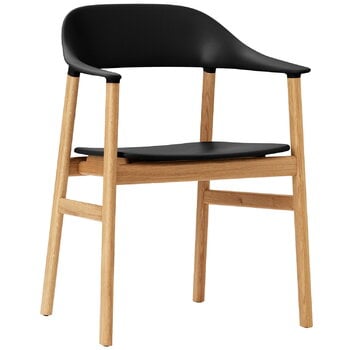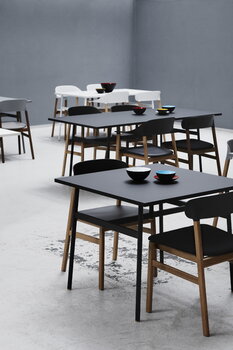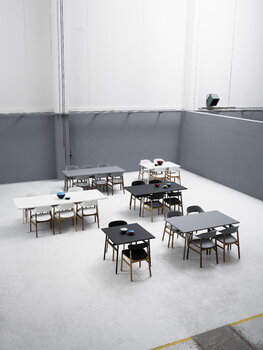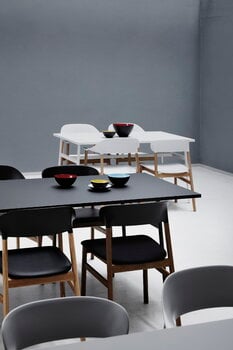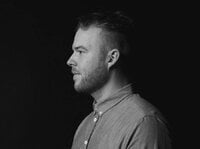Normann Copenhagen’s Herit is a strong but subtle oak chair featuring a softly curved polypropylene seat and backrest. A short for heritage, Herit reflects designer Simon Legald’s love for classic Danish furniture design – its timeless expression has influences from many different eras of Danish design. The modern production methods and material compositions make Herit also a forward-looking chair that brings new sparkle to Scandinavian design. Thanks to its versatile character, Herit goes easily together with old, rustic tables, bold design classics as well as contemporary dining and restaurant tables.
Herit armchair, oak - black
Normann Copenhagen
Description
Normann Copenhagen’s Herit is a strong but subtle oak chair featuring a softly curved polypropylene seat and backrest. A short for heritage, Herit reflects designer Simon Legald’s love for classic Danish furniture design – its timeless expression has influences from many different eras of Danish design. The modern production methods and material compositions make Herit also a forward-looking chair that brings new sparkle to Scandinavian design. Thanks to its versatile character, Herit goes easily together with old, rustic tables, bold design classics as well as contemporary dining and restaurant tables.
Product details (10)
- Colour
- Oak, black
- Width
- 60 cm
- Depth
- 51 cm
- Height
- 81.5 cm
- Seat height
- 45 cm
- Main material
- Plastic
- Base material
- Oak
- Weight
- 7 kg
- Notes
- Comes assembled.
- Care instructions
- Clean with damp cloth.
- Product ID
Designer
Simon Legald (b. 1986) is a Danish designer and Head of Design at Normann Copenhagen. Graduating from the Royal Danish Academy of Fine Arts in 2012, Legald began his long and productive collaboration with Normann Copenhagen shortly after. His designs blend traditional craftsmanship with industrial techniques, focusing on modern simplicity and a precise balance between functionality and visual aesthetics. One of Legald's best-known works is the Form chair collection, which received the iF Design Award in 2016.
View all productsReviews (0)
Sustainability
The Product Sustainability Framework, our criteria of sustainable design, helps you find the most sustainable products in our selection. Read below which sustainability criteria this product has met.
Working conditions & labour 7/9
-
Equal opportunities for all employees
-
Commitment to UN Global Compact, fair compensation for all employees
-
Corporate responsibility requirements defined and communicated for suppliers
-
Systematic work for improved inclusion and well-being in the workplace
-
Transparent supply chain
-
Suppliers' compliance to a code of conduct ensured
-
Compliance to the UN Guiding Principles on Business and Human Rights ensured in the supply chain
Eco-friendly production 6/9
-
Fair and resource-wise water-use in production
-
No incineration or landfilling of returned items
-
No use of endangered species as materials
-
No direct environmental emissions or waste (excl. GHGs) from production
-
Material-efficient and ecological packaging
-
No potentially harmful chemicals used in own production
Climate impact 4/8
-
Company's direct greenhouse gas emissions identified and commitment to reduction
-
Product's carbon impact identified and commitment to reduction
-
Guidance on energy- and eco-efficient use of the product
-
Contribution to climate initiatives beyond the brand’s direct operations
Sustainable materials 3/6
-
Sustainable and long-lasting material choices
-
No harmful or hazardous substances
-
Responsible raw material sourcing and production
Circular design 3/5
-
High aesthetic quality promoting long-term use of the product
-
Technically durable product design and material choices
-
Design for enduring life-long quality

